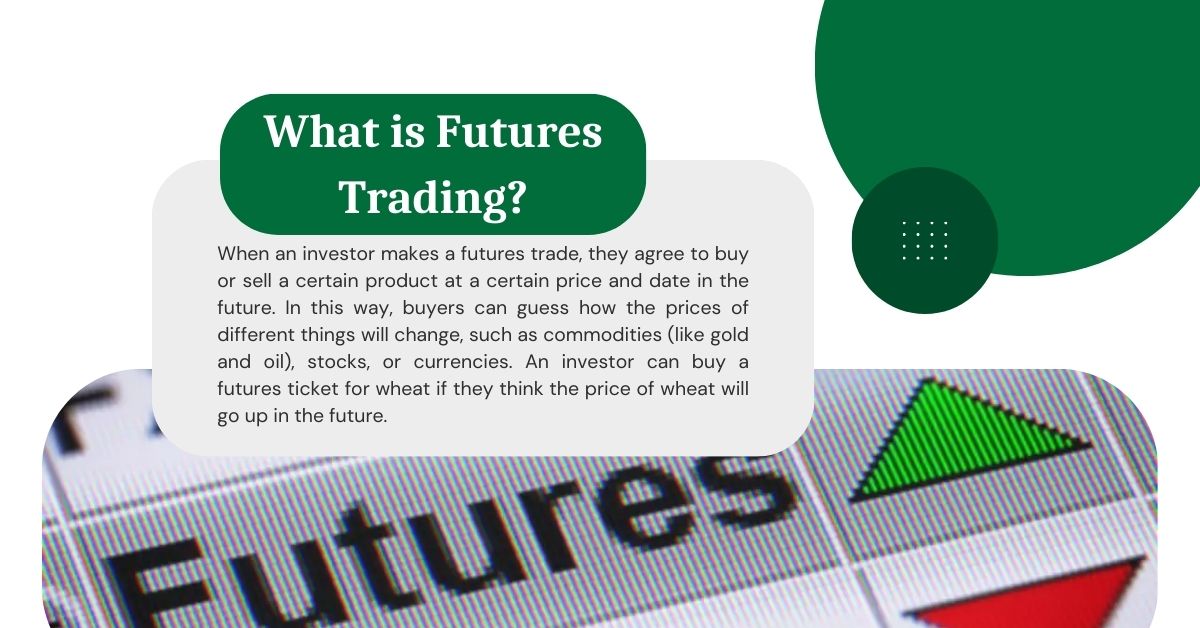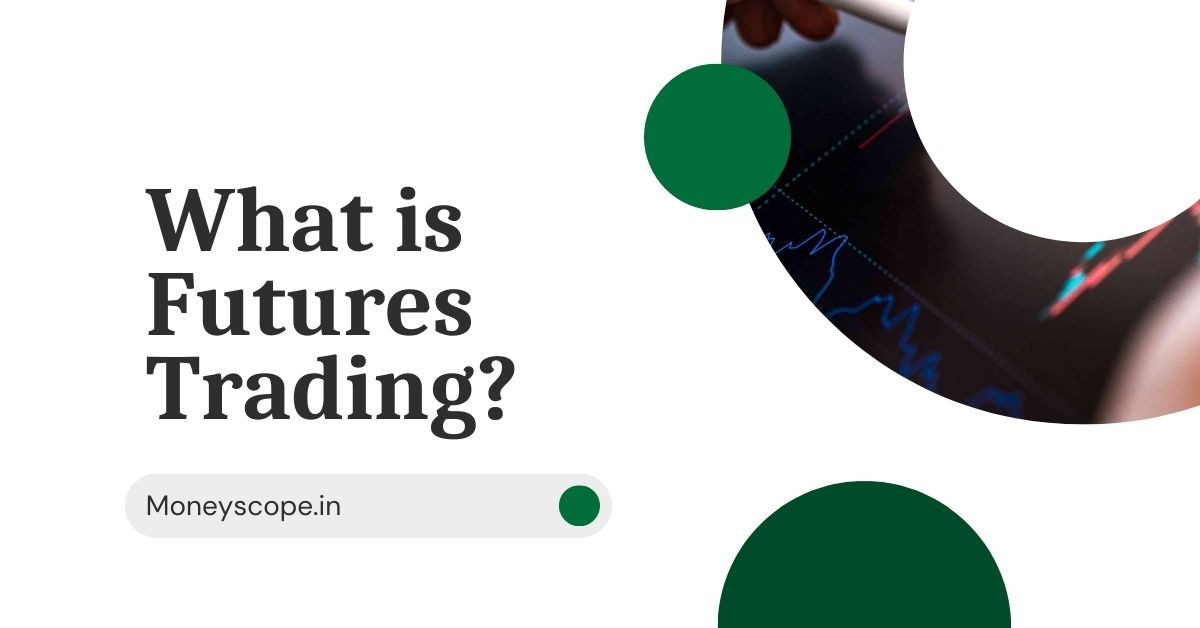Have you ever wished you could get into the stock market and profit from changes in prices? Trading futures and options is the best thing for you if you said yes.
You can bet on the future direction of stocks, commodities, currencies, and other things with these powerful trading tools. Besides that, these assets give you options and let you make money from market changes, whether they are positive, negative, or neutral.
This blog post will take the mystery out of futures and options by explaining what they are, what they can do for you, and how they can improve your financial strategies. Now, let’s take a closer look at what futures dealings mean.
What is Futures Trading?

When an investor makes a futures trade, they agree to buy or sell a certain product at a certain price and date in the future. In this way, buyers can guess how the prices of different things will change, such as commodities (like gold and oil), stocks, or currencies. An investor can buy a futures ticket for wheat if they think the price of wheat will go up in the future.
They can make money by selling the contract if the price does go up as planned. But if the price goes down, they will lose money. Futures buying is risky because you could make or lose a lot of money, but it can also help you diversify your portfolio and protect yourself from market risks.
Why Trade Futures?
There are several reasons why people buy futures:
- Gains or losses can be magnified because futures contracts let investors control a large amount of an asset with a small starting investment.
- Price speculation: Traders can make money when the price of a base asset goes up or down, even if they don’t own that asset.
- Hedging: Futures contracts can be used to balance out the risks of other trades. For example, a farmer can protect their crops from possible price drops by selling a futures ticket for the same good.
- Futures can be added to a portfolio to spread out risk and possibly make total returns better.
- Futures markets are often very liquid, which means it’s easy to buy or sell contracts.
How Does Futures Trading Work?
In futures trading, you agree to buy or sell a certain product at a certain price and on a certain date in the future. How much the contract is worth changes based on how much the underlying object is worth. You agree to buy a certain amount of wheat at a certain price on a certain date in the future if you buy a futures contract for wheat.
When your contract ends, if the price of wheat goes up before the end date, it will be worth more. If the price of wheat goes down, on the other hand, your contract will be worth less. Futures contracts are bought and sold on markets, which are places where buyers and sellers meet to set the price of the contract. Futures contracts are a way for traders to bet on how prices will move or to protect other investments.
Types of Futures Traders
There are several types of futures traders:
- Speculators: These traders aim to profit from price fluctuations in the underlying asset. They may buy or sell contracts based on their predictions of future price movements.
- Hedgers: Hedgers use futures contracts to offset risks associated with other investments. For example, a farmer may sell a futures contract for wheat to hedge against potential price declines for their crops.
- Arbitrageurs: These traders seek to profit from price discrepancies between different markets or instruments. They may buy a futures contract in one market and sell a similar contract in another market to exploit the price difference.
- Day Traders: Day traders buy and sell futures contracts within the same trading day, aiming to profit from short-term price movements.
- Position Traders: Position traders hold futures contracts for longer periods, often weeks or months, to capitalize on larger price trends.
Each type of trader has different strategies and risk tolerances, and the choice of trading style depends on individual goals and preferences.
Advantages and Disadvantage of Futures Trading
| Advantage | Disadvantage |
|---|---|
| Leverage: Allows investors to control large amounts of assets with a relatively small initial investment. | High Risk: Leverage can amplify both gains and losses, leading to significant financial losses if not managed carefully. |
| Price Speculation: Offers opportunities to profit from price fluctuations in various assets without owning them. | Volatility: Futures markets can be highly volatile, making it difficult to predict price movements accurately. |
| Hedging: Can be used to offset risks associated with other investments. | Complexity: Futures trading can be complex, requiring a strong understanding of market dynamics and risk management. |
| Liquidity: Futures markets are often highly liquid, making it easy to buy or sell contracts. | Transaction Costs: Futures trading involves transaction costs, such as commissions and fees, which can erode profits. |
| Diversification: Can be used to diversify a portfolio and potentially improve overall returns. | Margin Requirements: Traders must maintain a certain amount of margin in their accounts to cover potential losses, which can limit their trading capacity. |
Which Is More Profitable, Futures or Options?
Which is more profitable, futures or options? That depends on a lot of things, like the market conditions, how much risk you are willing to take, and your trading tactics. Futures offer more leverage, which can make gains and losses bigger. Options give buyers more choices, which lowers their risk of losing money.
When the market is unstable, traders can make more money with options because they can gain from big price changes without losing all of their money. In a safe market, on the other hand, futures may be more profitable because they have lower risk. In the end, the choice that will make the trader the most money will depend on the specifics of the situation and how well they can handle risk.

